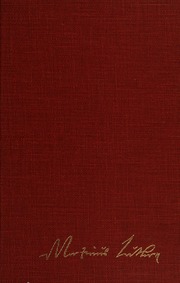Reformed Covenanter
Cancelled Commissioner
First, the vow must be possible of fulfilment and within our power to perform. For who will vow an impossible thing? Or who will demand it? All vows are therefore described in the Scriptures in terms that are within our power, such as to give God cattle, sheep, houses, land, and so on. Now, chastity is not in our power, as little as are God’s other wonders and graces. But we are all made for marriage, as our bodies show and as the Scriptures state in Gen., ch. 2: “It is not good that man should be alone; I will make him a help meet for him.”
Whoever, therefore, considers himself a man and believes himself to be included in this general term should hear what God, his Creator, here says and decrees for him: he does not wish man to be alone but desires that he should multiply, and so he makes him a helpmeet to be with him and help him so that he may not be alone. This is the Word of God, through whose power procreative seed is planted in man’s body and a natural, ardent desire for woman is kindled and kept alive. This cannot be restrained either by vows or by laws. For it is God’s law and doing. Let him who will be alone abandon the name of man and prove or make himself an angel or spirit, for God does not grant or allow such a condition to a man. ...
For more, see:

 reformedcovenanter.wordpress.com
reformedcovenanter.wordpress.com
Whoever, therefore, considers himself a man and believes himself to be included in this general term should hear what God, his Creator, here says and decrees for him: he does not wish man to be alone but desires that he should multiply, and so he makes him a helpmeet to be with him and help him so that he may not be alone. This is the Word of God, through whose power procreative seed is planted in man’s body and a natural, ardent desire for woman is kindled and kept alive. This cannot be restrained either by vows or by laws. For it is God’s law and doing. Let him who will be alone abandon the name of man and prove or make himself an angel or spirit, for God does not grant or allow such a condition to a man. ...
For more, see:

Martin Luther on a man’s natural desire for a woman
First, the vow must be possible of fulfilment and within our power to perform. For who will vow an impossible thing? Or who will demand it? All vows are therefore described in the Scriptures in ter…
 reformedcovenanter.wordpress.com
reformedcovenanter.wordpress.com


